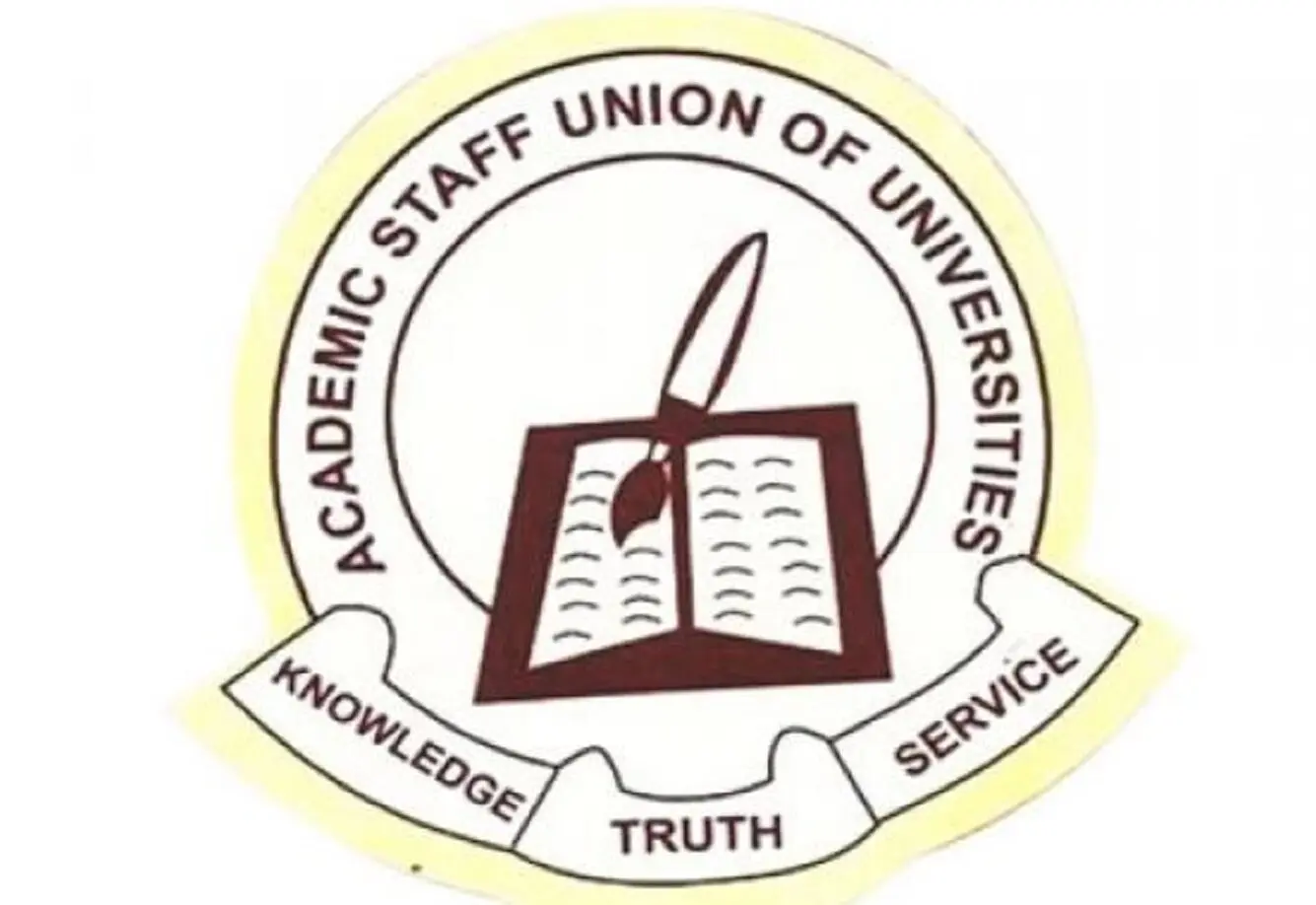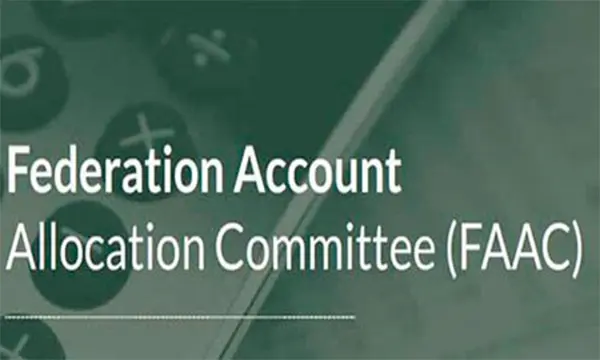Education
Business owners operating in universities plead end to ASUU industrial action

By Derrick Bangura – Business owners in the Alex Ekwueme Federal University, Ndufu-Alike, Ikwo (AEFUNAI), have called for end to the current showdown between the federal government and the Academic Staff Union of Universities (ASUU).
The business operators spoke in separate interviews with the News Agency of Nigeria on Wednesday during assessment visit to the university community at Ikwo local government area of Ebonyi.
The respondents criticized the low business patronage due to absence of students on the campus and urged FG and ASUU to go back to the negotiating table to resolve the imbroglio.
According to them, the strike which has entered its second month has crippled business activities in the area while many petty businesses had been forced to close while others had resorted to alternative means to eke out a living.
Hyginus Onwe, a restaurant owner said that the absence of students from the university due to lingering strike had slowed down sales.
He said that students constituted bulk of their clientele and expressed dismay that there was a huge downturn in sales occasioned by the protected strike action.
“The strike has affected business activities adversely in this area because students constitute greater percentage of our customer base.
“On a normal period, we sell between 10 and 15 cartons of beer and malt drinks in a day.
“But, since students vacated the campus and their various hostels because of the strike, we barely sell up to five cartons in a day.
“I appeal to FG to open up a sincere dialogue with the striking university lecturers while ASUU should yield by suspending the ongoing strike and embrace dialogue.
“The students, their parents and we, who depend on the university for our businesses, are suffering the crisis,” Onwe said.
Mrs Agnes Itumo, a Business Centre owner in the campus said that she had been practically put out of business since the strike began.
Itumo, a widow and mother of five, said that she depended on the proceeds generated from the business to feed her children and pay other bills.
“I can barely feed my children and take care of other family responsibilities including the payment of utility bills.
“It is from the ‘term papers’ we type for the students, the photocopies and other services we render to them and the lecturers that we eke our living.
“Now that the university is practically shut down, life and survival are very difficult for us.
“We are appealing to the parties involved to reach a truce, suspend the strike and embrace dialogue.
“We are suffering the effect of the strike and our children who have been at home should be made to come back and continue with their programmes,” Itumo said.
Mr Livinus Ogah, a mini-bus operator plying Ikwo/Abakaliki route, said that the strike had affected the transportation business stressing that students and lecturers constituted bulk of their passengers.
“We stay idle since the strike began forcing students to vacate their hostels and the campus and we can hardly make ends meet,” Ogah said.
ASUU in February declared a four-week role-over nation-wide strike to press home its demand on FG to implement the 2009 renegotiated agreement signed in Dec 2020.
The union at the end of the one month warning strike further reviewed the industrial action for another two months.
ASUU was also protesting the imposition of Integrated Personnel Payroll Information System (IPPIS) as payment platform for the university lecturers.
Education
Nafisa Spoke, the World Listened, And Nigeria Shined

Nafisa Spoke, the World Listened, And Nigeria Shined
By Matthew Eloyi
When I first read about 17-year-old Nafisa Abdullah Aminu emerging as the World Best in English Language Skills at the 2025 TeenEagle Global Finals in London, I paused, read it again, and then sat quietly, moved in a way I haven’t been in a long time. In that moment, I wasn’t just a Nigerian reading a piece of good news; I was a Nigerian filled with pride, hope, and a renewed belief in our greatness.
Let me be honest: in a country weighed down by insecurity, economic hardship, and a struggling educational system, it’s easy, too easy, to become cynical. But Nafisa’s victory pierced through that fog of despair and reminded me why I have always believed in this country, despite everything.
Think about it: this young girl, from Yobe State, a region often reduced to a footnote in conversations about insecurity and poverty, stood on a global stage in London, not just to participate, but to conquer. She didn’t just win a medal. She defeated over 20,000 participants from 69 countries, including from places where English is a first language.
Let that sink in.
As someone who has spent years writing, editing, and advocating for better education in Nigeria, I understand just how powerful and rare this kind of achievement is. I see myself in Nafisa, in her curiosity, her hunger for knowledge, and her refusal to be boxed in by circumstance. Her story makes me emotional, not just because it’s inspiring, but because it reminds me of the many gifted Nigerian children who never get the chance to shine. Nafisa represents them, and she represents what’s possible when we choose to invest in our youth.
I am also deeply moved by the humility and grace of the Aminu family, who publicly acknowledged the role of Governor Mai Mala Buni’s educational reforms and the impact of Nigerian Tulip International College in preparing their daughter for the global stage. This wasn’t a solo journey; it was a collective effort rooted in family values, good governance, and dedicated educators.
“We cannot take all the credit,” they said. And in that simple statement, they reminded me that when leadership, community, and family work together, magic happens.
Nafisa’s win isn’t just a win for Yobe State. It’s not even just a win for Nigeria. It’s a resounding answer to every doubt we’ve ever had about our potential as a nation. Her victory tells every Nigerian child that “you are enough, and the world will hear your voice if you dare to speak it.”
As I write this, I think about the millions of young girls in the North and across Nigeria who will see Nafisa’s face and think, “If she can do it, so can I.” That, right there, is the power of representation.
I join the growing chorus of voices calling for State and National Honours for Nafisa. We must celebrate her not just with headlines, but with action, by investing more in education, giving scholarships, and ensuring that no child with potential is left behind because of geography, gender, or poverty.
To Nafisa, if you ever read this, know that you didn’t just win a competition; you reignited a nation’s pride. You gave us something we desperately needed: a reason to believe again.
And to Nigeria, this is who we are: brilliant, resilient, and unstoppable when given a chance.
Nafisa didn’t just make Yobe proud. She made me proud. She made us proud.
Education
NELFUND Begins Upkeep Payments to Over 3,600 Students After Bank Detail Update

The Nigerian Education Loan Fund (NELFUND) has commenced the disbursement of upkeep payments to students who successfully updated their bank account details from digital wallets to commercial bank accounts.
This was announced in a statement released on Friday in Abuja by the Director of Strategic Communications of the Fund, Mrs. Oseyemi Oluwatuyi.
Oluwatuyi described the development as a significant breakthrough in addressing earlier disbursement delays.
“Over 3,600 students, who previously registered with digital-only banking platforms, have now successfully received their backlog of upkeep payments after updating their details to conventional commercial bank accounts on the NELFUND portal,” she stated.
“We appreciate the patience and understanding of all affected students during this period. Your resilience and cooperation have made this progress possible,” she added.
The NELFUND spokesperson advised students who have yet to update their bank details to raise a support ticket via the official NELFUND portal to request access for the update.
She further urged affected students to report through the IT office of their respective institutions, which would compile and forward all related cases to NELFUND for prompt resolution.
“NELFUND remains committed to ensuring that no eligible student is left behind. This resolution process is part of our broader effort to enhance the efficiency, transparency, and student-centered delivery of our support services,” she said.
Oluwatuyi encouraged students to continue engaging only through official NELFUND channels and to assist their peers who may need help navigating the update process.
She also provided contact options for inquiries, stating that the fund can be reached via email at info@nelf.gov.ng or through its official social media handles: X (formerly Twitter) @nelfund; Instagram @nelfund; and Facebook & LinkedIn: Nigerian Education Loan Fund – NELFUND.
Education
NELFUND Urges Institutions to Upload Student Data for Loan Processing

The Nigerian Education Loan Fund (NELFUND) has issued a directive to all accredited tertiary institutions to verify and upload their students’ data on the newly digitised Student Loan Application System (SLAS).
This was disclosed in a statement released in Abuja on Wednesday by the Director of Strategic Communications at NELFUND, Mrs Oseyemi Oluwatuyi.
According to Oluwatuyi, the SLAS platform has been fully digitised to streamline and accelerate the student loan processing experience for both institutions and applicants.
“With this upgrade, all accredited institutions are now required to request access to SLAS to verify and upload student data related to loan applications,” she said.
She described the move as “a critical step that ensures the timely processing and disbursement of approved student loans.”
Institutions that have not yet been onboarded onto the system, she said, are advised to send an access request to registration@nelf.gov.ng without delay.
“Once granted access, institutions will be able to view a real-time dashboard of their students’ loan applications, verify submitted data, and track the status of each application,” Oluwatuyi explained.
She called on all institutions to take immediate action in the interest of their students, stressing that verification and data upload by institutions are mandatory steps before final approval and disbursement of loans can be completed.
On the students’ side, Oluwatuyi noted that if an application status currently shows “Verified,” it means the application has passed initial checks. However, final approval and disbursement depend on the institutions’ confirmation and data upload.
“Once this process is completed, your status will be updated to ‘Disbursed’ when the payment of your fees has been processed,” she added.
She also encouraged students to reach out to the fund for assistance via email at info@nelf.gov.ng.
Other official communication channels include:
-
X (formerly Twitter): @nelfund
-
Instagram: @nelfund
-
Facebook & LinkedIn: Nigerian Education Loan Fund – NELFUND
-

 Headlines4 years ago
Headlines4 years agoFacebook, Instagram Temporarily Allow Posts on Ukraine War Calling for Violence Against Invading Russians or Putin’s Death
-

 Headlines4 years ago
Headlines4 years agoNigeria, Other West African Countries Facing Worst Food Crisis in 10 Years, Aid Groups Say
-

 Foreign4 years ago
Foreign4 years agoNew York Consulate installs machines for 10-year passport
-

 News1 year ago
News1 year agoZero Trust Architecture in a Remote World: Securing the New Normal
-

 Entertainment3 years ago
Entertainment3 years agoPhyna emerges winner of Big Brother Naija Season 7
-

 Headlines2 years ago
Headlines2 years agoNigeria Customs modernisation project to check extortion of traders
-

 Entertainment2 years ago
Entertainment2 years agoMovie download platform, Netnaija, announces closure
-

 Economy2 years ago
Economy2 years agoWe generated N30.2 bn revenue in three months – Kano NCS Comptroller















